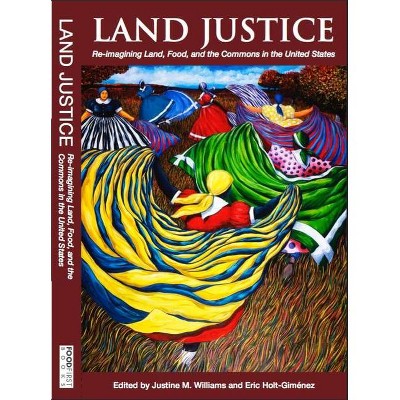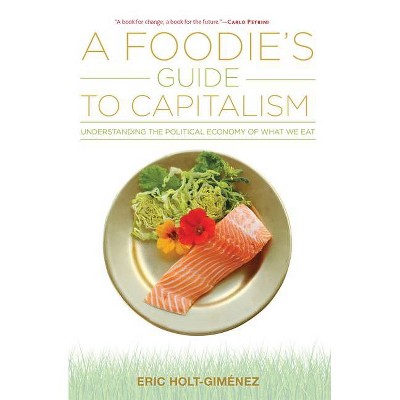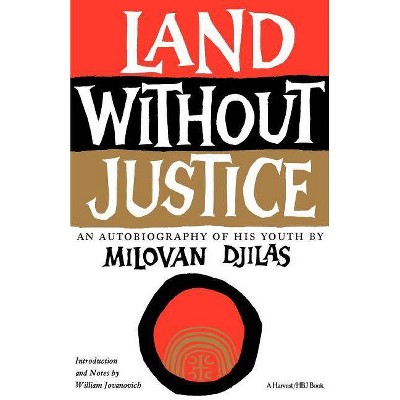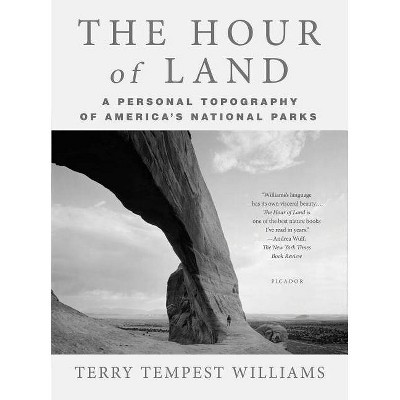Land Justice - by Justine M Williams & Eric Holt-Giménez (Paperback)

Similar Products
Products of same category from the store
AllProduct info
<p/><br></br><p><b> About the Book </b></p></br></br>The book makes the case that to move forward to a more equitable, just, sustainable, and sovereign agriculture system, the various strands of the food movement must come together for land justice.<p/><br></br><p><b> Book Synopsis </b></p></br></br>In recent decades, the various strands of the food movement have made enormous strides in calling attention the many shortcomings and injustices of our food and agricultural system. Farmers, activists, scholars, and everyday citizens have also worked creatively to rebuild local food economies, advocate for food justice, and promote more sustainable, agroecological farming practices. However, the movement for fairer, healthier, and more autonomous food is continually blocked by one obstacle: land access. As long as land remains unaffordable and inaccessible to most people, we cannot truly transform the food system. <p/>The term land-grabbing is most commonly used to refer to the large-scale acquisition of agricultural land in Asian, African, or Latin American countries by foreign investors. However, land has and continues to be "grabbed" in North America, as well, through discrimination, real estate speculation, gentrification, financialization, extractive energy production, and tourism. This edited volume, with chapters from a wide range of activists and scholars, explores the history of land theft, dispossession, and consolidation in the United States. It also looks at alternative ways forward toward democratized, land justice, based on redistributive policies and cooperative ownership models. <p/>With prefaces from leaders in the food justice and family farming movements, the book opens with a look at the legacies of white-settler colonialism in the southwestern United States. From there, it moves into a collectively-authored section on Black Agrarianism, which details the long history of land dispossession among Black farmers in the southeastern US, as well as the creative acts of resistance they have used to acquire land and collectively farm it. The next section, on gender, explores structural and cultural discrimination against women landowners in the Midwest and also role of "womanism" in land-based struggles. Next, a section on the cross-border implications of land enclosures and consolidations includes a consideration of what land justice could mean for farm workers in the US, followed by an essay on the challenges facing young and aspiring farmers. Finally, the book explores the urban dimensions of land justice and their implications for locally-autonomous food systems, and lessons from previous struggles for democratized land access. <p/>Ultimately, the book makes the case that to move forward to a more equitable, just, sustainable, and sovereign agriculture system, the various strands of the food movement must come together for land justice.<br><p/><br></br><p><b> Review Quotes </b></p></br></br><br><p> </p><p> </p><p>"Land Reform in America has been deferred for too long. This book paints a powerful picture of the continuuing need and rallies us to make it happen. There's still time to carry out the vision we started building in the 1970s." <strong>--- Peter Barnes, co-founder of Credo Mobile and editor of <em>The People's Land: A Reader on Land Reform in the United States</em></strong></p><p>"This volume presents a unique discussion of US agriculture and the ongoing struggle for land justice in the words of engaged activists - women, Latinos, Native Americans, and African Americans. The variety of inspiring approaches to action included here offer lessons for everyone concerned with land, food, and a just society." <strong>---Fred Magdoff, Professor Emeritus at the University of Vermont and board member of the Monthly Review Foundation</strong></p><p>"Hunger and poverty are perpetuated by undemocratic systems of power. Now, this great new resource lifts the veil hiding the history of dispossession and unequal land access in the US. It reveals land as the next major arena of struggle for food, economic, and social justice movements, while highlighting new projects and pathways forward." <strong>--- Frances Moore Lappé, author of <em>Diet for a Small Planet</em></strong></p><br>
Price History
Cheapest price in the interval: 24.95 on October 27, 2021
Most expensive price in the interval: 24.95 on December 20, 2021
Price Archive shows prices from various stores, lets you see history and find the cheapest. There is no actual sale on the website. For all support, inquiry and suggestion messagescommunication@pricearchive.us



















